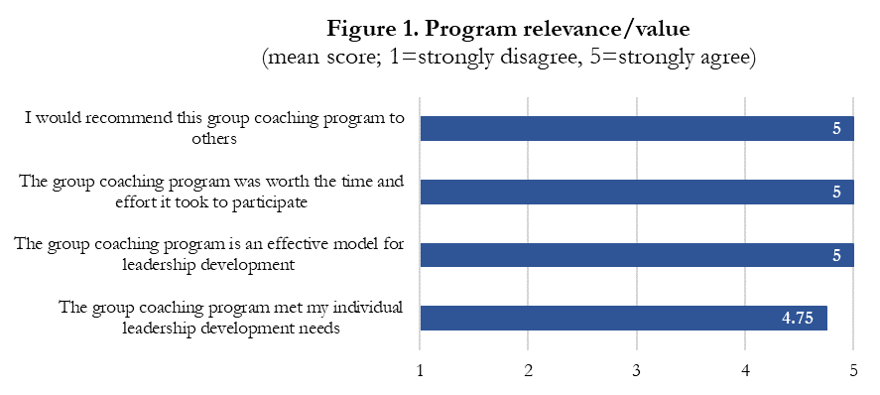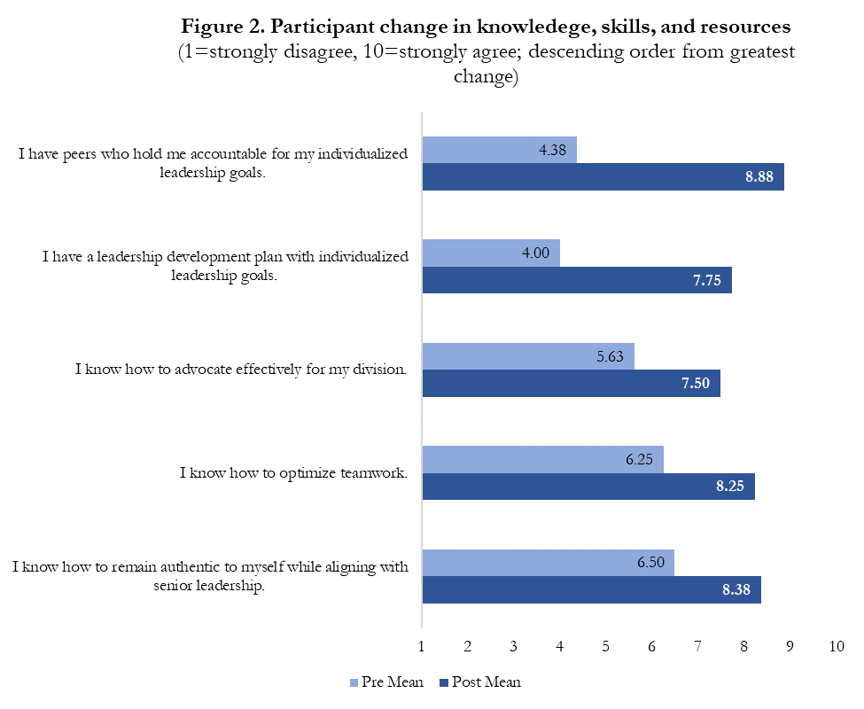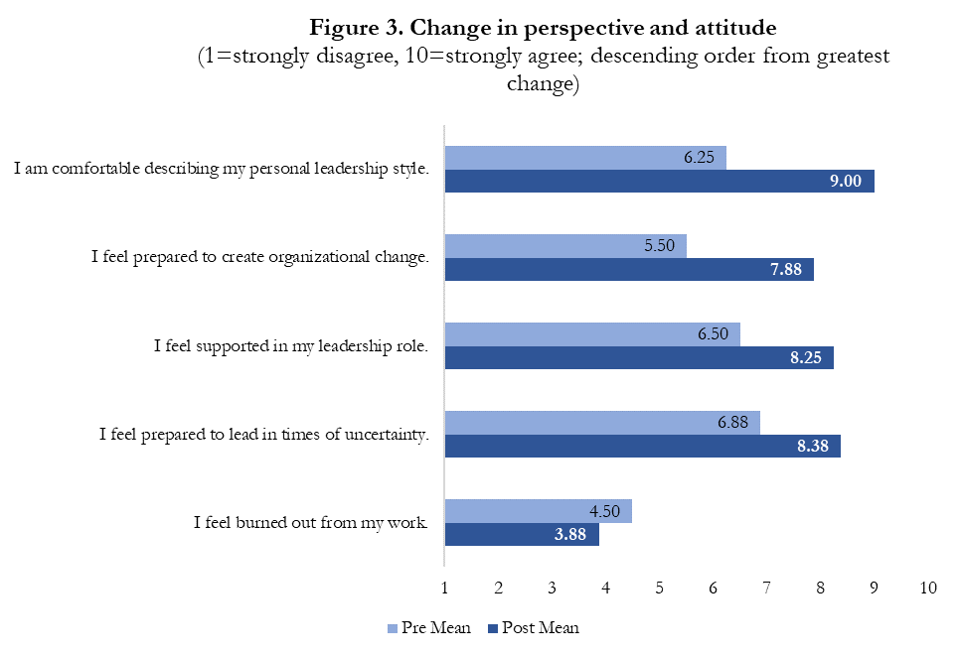Medical Education
Session: Medical Education 3
551 - Piloting a Leadership Group Coaching Program for Pediatric Division Chiefs
Friday, May 3, 2024
5:15 PM - 7:15 PM ET
Poster Number: 551
Publication Number: 551.168
Publication Number: 551.168

Kathleen W. Bartlett, MD (she/her/hers)
Vice Chair for Faculty, Department of Pediatrics
Duke University School of Medicine
Durham, North Carolina, United States
Presenting Author(s)
Background: Leadership skills must be continuously developed, honed and cultivated at all levels. This project piloted a facilitated group coaching program to develop leadership and peer-mentoring skills among a cohort of 8 newly appointed pediatric division chiefs.
Objective: To measure feasibility and acceptability of the leadership group coaching program (LGCP) and assess gains in confidence and preparedness for divisional leadership roles.
Design/Methods: Eight new division chiefs participated in the LGCP. A professional organizational development coach facilitated the program virtually in 6 two-hour sessions over 3 months. Content was tailored to the group’s specific needs and drew from an existing leadership framework (1) focusing on change management, teamwork optimization, and strategic alignment. Key activities included a leadership style assessment (DiSC), group discussion and coaching based on participants’ real-time challenges, and creation of leadership development plans with support from assigned accountability partners. All participants (n=8) completed pre- and post-program surveys administered in Qualtrics. Data were analyzed using descriptive statistics. Seven participants also engaged in a 60-minute focus group 2 months after program completion. Qualitative data were analyzed using a rapid thematic analysis.
Results: All participants attended at least 5 sessions, completed the DiSC, created a leadership development plan, and met with an accountability partner at least 3 times. All strongly agreed that LGCP was an effective model, was worth the time and effort, and would recommend the program to others (Fig 1). Focus group participants described the DiSC assessment, real-time problem solving, and accountability partners as the most valuable components of the program. They preferred this personalized program to prior leadership trainings. Participants showed growth in each of the leadership skills measured (Fig 2), including advocacy, teamwork, and remaining authentic to self while aligning with senior leadership. They indicated increased preparedness for their role (Fig 3), including describing leadership styles, creating organizational change, feeling supported, and leading in times of uncertainty. There was a small decrease in burnout.
Conclusion(s): The LGCP demonstrated high levels of participation and satisfaction and positively impacted participants’ leadership self-efficacy. A group coaching framework can be utilized to address the evolving stages and challenges of a leader’s career, and should be scaled for further study.
(1) https://gotowerscope.com/strategic-leadership-pathway-program



